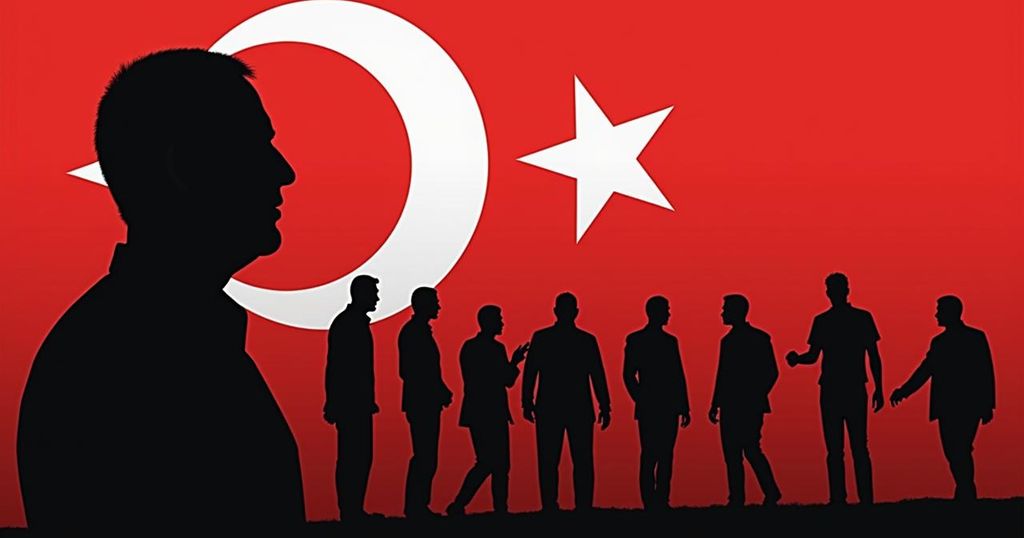Kais Saied Poised for Reelection Amid Political Tensions in Tunisia
Tunisian President Kais Saied is expected to win reelection with 89.2 percent of the vote, according to exit polls, amidst a low voter turnout of 28 percent. His main opponents received minimal support, and the election’s integrity has been questioned due to the imprisonment of opposition figures and the disqualification of candidates. The political landscape remains tense as Saied’s administration faces criticism for reversing democratic advancements since taking power.
Tunisian President Kais Saied is poised to secure victory in the presidential election, as exit polls indicate he garnered 89.2 percent of the votes. This election, held on Sunday, witnessed a voter turnout of approximately 28 percent. Saied’s reign, which commenced following a significant power consolidation three years ago, appears solidified by this result. The official election results are anticipated to be announced this evening by Tunisia’s Independent High Authority for Elections (ISIE). Saied faced two challengers in this election: Zouhair Maghzaoui, leader of the Chaab Party and a former ally, and businessman Ayachi Zammel. The latter was sidelined by legal issues that led to his imprisonment the previous month. According to the exit poll, Maghzaoui received a mere 3.9 percent of the vote, while Zammel obtained 6.9 percent. ISIE spokesman Mohamed Tlili Mansri reported that the voter turnout was recorded at 27.7 percent, slightly below the anticipated figure of 30 percent. The election is marred by controversy, as numerous high-profile politicians opposing Saied have been imprisoned under various charges, leaving the existing candidates without significant public backing. Notably, Rached Ghannouchi, head of the Ennahda party, has been detained, orchestrating a climate of political repression since Saied took power. Critics have expressed concern regarding Saied’s erosion of democratic principles established after the 2011 Arab Spring, arguing that his governance style resembles an authoritarian regime. Nevertheless, Saied has maintained that his measures are necessary to combat a corrupt elite and traitors within the political sphere. Political unrest has escalated following the electoral commission’s disqualification of three candidates, a move that has faced considerable backlash from opposition and civil society groups. In the context of economic instability characterized by sluggish growth, soaring inflation, and rising unemployment, discontent has led to increasingly frequent protests. Recent actions taken by lawmakers allied with Saied have stripped the administrative court of its power to adjudicate election disputes, further undermining the independence of judicial oversight in Tunisia, especially following the president’s controversial dissolution of the Supreme Judicial Council in 2022. The political climate has been fraught since Saied’s decisions to dissolve parliament and rewrite the constitution in what many call a coup, with the new constitution being ratified with only a 30 percent voter turnout and subsequent parliamentary elections garnering a dismal 11 percent participation.
The Tunisian presidential election reflects ongoing political tensions amid an atmosphere of repression and discontent. Since Kais Saied assumed power, there has been a marked decline in democratic practices, leading to widespread criticism from domestic and international observers. Key opposition figures have faced imprisonment, contributing to an absence of significant opposition during the electoral process, which is compounded by economic challenges faced by the nation.
In summary, President Kais Saied’s anticipated election victory, as evidenced by exit poll results indicating 89.2 percent of the vote, underscores a concerning trajectory for Tunisian democracy. The prevailing political climate, characterized by the incarceration of opposition leaders and restricted electoral participation, highlights significant risks to democratic governance in Tunisia. Saied’s administration continues to assert its actions as necessary reforms while facing increasing scrutiny for its authoritarian measures.
Original Source: www.aljazeera.com




Post Comment